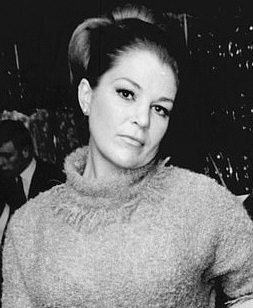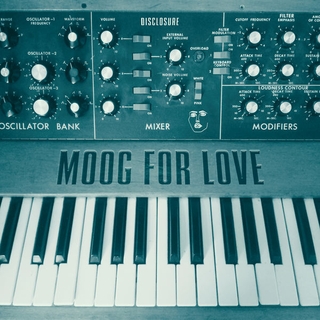Related Research Articles
Vocalese is a style of jazz singing in which words are added to an instrumental soloist's improvisation.
"How High the Moon" is a jazz standard with lyrics by Nancy Hamilton and music by Morgan Lewis. It was first featured in the 1940 Broadway revue Two for the Show, where it was sung by Alfred Drake and Frances Comstock. In Two for the Show, this was a rare serious moment in an otherwise humorous revue.

Annie Ross was a British-American singer and actress, best known as a member of the influential jazz vocal trio Lambert, Hendricks & Ross. She pioneered the vocalese style of jazz singing, with a style described by critic Dave Gelly as "a kind of dreamy watchfulness that is a definition of 1950s hip." In 2010, she was named a Jazz Master by the National Endowment for the Arts.

John Carl Hendricks, known professionally as Jon Hendricks, was an American jazz lyricist and singer. He is one of the originators of vocalese, which adds lyrics to existing instrumental songs and replaces many instruments with vocalists, such as the big-band arrangements of Duke Ellington and Count Basie. He is considered one of the best practitioners of scat singing, which involves vocal jazz soloing. Jazz critic and historian Leonard Feather called him the "Poet Laureate of Jazz", while Time dubbed him the "James Joyce of Jive". Al Jarreau called him "pound-for-pound the best jazz singer on the planet—maybe that's ever been".
King Pleasure was an American jazz vocalist and an early master of vocalese, where a singer sings words to a well-known instrumental solo.

Margrethe Blossom Dearie was an American jazz singer and pianist. She had a recognizably light and girlish voice. Dearie performed regular engagements in London and New York City over many years and collaborated with many musicians, including Johnny Mercer, Miles Davis, Jack Segal, Johnny Mandel, Duncan Lamont, Bob Dorough, Dave Frishberg, and Jay Berliner.

Eddie Jefferson was an American jazz vocalist and lyricist. He is credited as an innovator of vocalese, a musical style in which lyrics are set to an instrumental composition or solo. Jefferson himself claims that his main influence was Leo Watson. Perhaps Jefferson's best-known song is "Moody's Mood for Love" which was recorded in 1952 by King Pleasure and catapulted the contrafact into wide popularity. Jefferson's recordings of Charlie Parker's "Parker's Mood" and Horace Silver's "Filthy McNasty" were also hits.
"It Might as Well Be Spring" is a song from the 1945 film State Fair. which features the only original film score by the songwriting team of Richard Rodgers and Oscar Hammerstein II. "It Might as Well Be Spring" won the Academy Award for Best Original Song for that year.

Jay Leonhart is an American double bassist, singer, and songwriter who has worked in jazz and popular music. He has performed with Judy Garland, Bucky Pizzarelli, Carly Simon, Frank Sinatra, and Sting. Leonhart is noted for his clever songwriting, often laced with dry humor. His compositions have been recorded by Blossom Dearie, Lee Konitz, and Gary Burton. His poetry is published both in, and outside of, the venue of song.

James Moody was an American jazz saxophone and flute player and very occasional vocalist, playing predominantly in the bebop and hard bop styles. The annual James Moody Jazz Festival is held in Newark, New Jersey.

Vocalese is the ninth studio album by Jazz band The Manhattan Transfer, released on September 3, 1985 on Atlantic Records. Recording sessions took place during 1985. Production came from Tim Hauser and Martin Fischer. This album is considered to be The Manhattan Transfer's most critically acclaimed album. It received 12 Grammy nominations, making it second only to Michael Jackson's Thriller as the most nominated individual album. It also received extremely high ratings from music critics, including a 4.5 out of 5 stars rating from Allmusic. The album peaked at number 2 on the Top Jazz Albums and number 74 on the Billboard 200. The album's title Vocalese refers to a style of music that sets lyrics to previously recorded jazz instrumental pieces. The vocals then reproduce the sound and feel of the original instrumentation. Jon Hendricks, proficient in this art, composed all of the lyrics for this album.
Jeannine "Mimi" Perrin was a French jazz pianist, singer, and translator.
"Twisted" is a 1952 vocalese song with lyrics by Annie Ross, set to a tenor saxophone solo of the same title by Wardell Gray that was recorded in 1949. It has been covered by Bette Midler, Joni Mitchell, and many others.
"Corner Pocket" is a 1955 jazz standard. Versions with lyrics are titled "Until I Met You", or "Until I Met You (Corner Pocket)".

Moog for Love is the sixth extended play recorded by British electronic music duo Disclosure, consisting of brothers Howard and Guy Lawrence. The three-track record was released on 15 June 2016, by the labels Island and PMR Records. 2016 was a year where the duo were developing their skills of writing material while on the road. Its title is named after the 1952 Eddie Jefferson song "Moody's Mood for Love". They did not have enough material to produce a full-length album, but wanted to have a record released for the summer of that year regardless. Featuring collaborations with Eats Everything and Al Green, the album garnered generally mixed to positive reviews from music critics, some calling it a significant improvement over the duo's second studio LP Caracal (2015). Upon its release, the album landed at number 80 on the Australian Singles Chart.

Thore Swanerud was a Swedish jazz pianist, vibraphonist, arranger, conductor, and composer. He was born in Stockholm and died in the same city.
"Parker's Mood" is a piece of music originally performed by Charlie Parker as an improvised blues in 1948. Vocalese lyrics were later written and recorded by King Pleasure and Eddie Jefferson.
George "Teacho" Wiltshire was a Barbadian-born American R&B pianist, bandleader, arranger, A&R man, and songwriter, who had success in the 1950s and 1960s with musicians including Annie Ross, Sister Rosetta Tharpe, the Isley Brothers and the Drifters.

Satisfaction Guaranteed is a 1979 studio album by Mark Murphy.

Just Jazz is a live album by Mark Murphy.
References
- Luebbert, David. "I'm in the Mood For Love". SongTrellis. Retrieved April 3, 2009.
- Kurtz, Alan. "King Pleasure: Moody's Mood For Love (aka I'm In The Mood For Love)". Jazz.com. Retrieved April 3, 2009.
- Tyle, Chris. "I'm in the Mood for Love (1935)". JazzStandards.com. Retrieved April 3, 2009.
- Milkowski, Bill (March 2004). "James Moody: Playing with the Changes". JazzTimes. Retrieved April 3, 2009.